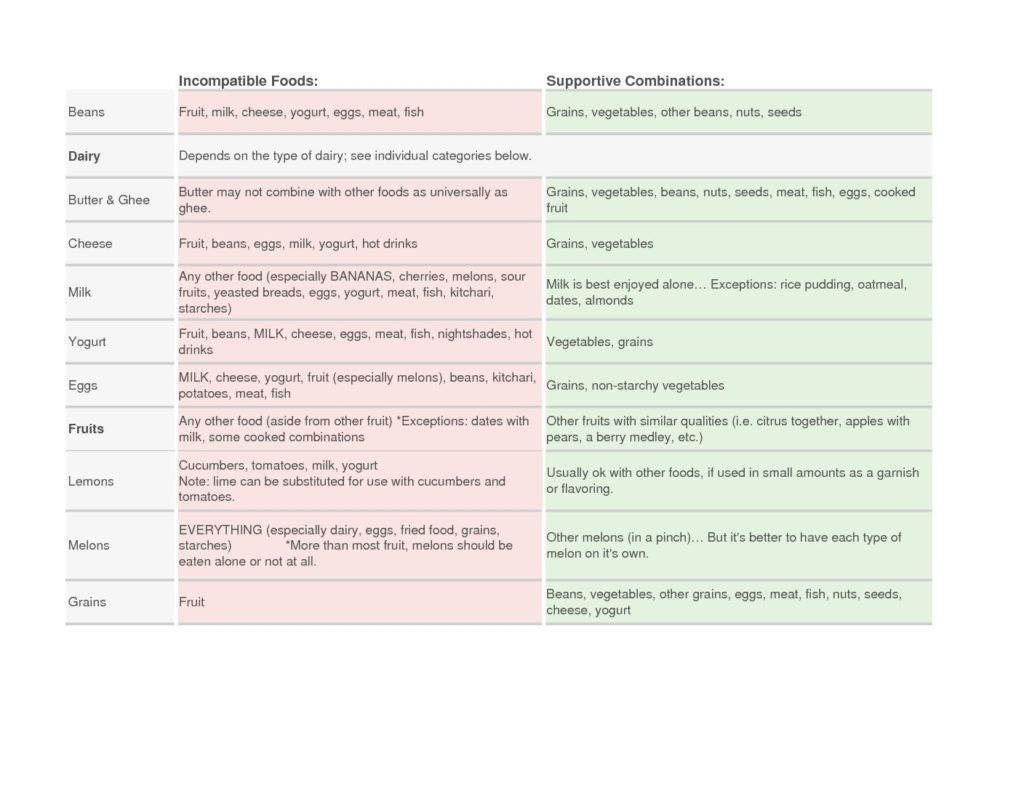Food combining is a critical component of well being. When foods are combined with other foods that require different digestive enzymes, the body has a harder time digesting those foods. And if the body cannot digest and break down the foods we eat, it cannot nourish our bodily tissues. Those foods turn into toxins instead of nutrients for the body.
Proper food combining can dramatically improve the quality of digestion, support the body in receiving a deeper level of nourishment, and positively impact our overall health.
In Ayurveda, each food has a unique combination of tastes and energies (gunas and rasas). The result of combining foods with very different gunas and rasas or ones that are not compatible will overwhelm the digestive fire (Agni) and can cause indigestion, fermentation, gas, bloating, and the creation of toxins. This is why proper food combining is so important.
Learning how to properly combine food will not only improve day to day digestion and comfort, but also impact long term health. The start of good health is digestion and food combining is a key component to the journey towards optimal health.
Some simple guidelines for proper food combining according to JoyfulBelly.com are:
Reduce the Enzymes You Need to Digest
Every ingredient demands separate enzymes and attention from the gut. With simpler food combinations our body can focus on each ingredient without too much multi-tasking. Here are some general guidelines:
-
Eat only up to three main ingredients in a meal.
-
Avoid mixing animal with vegetable proteins such as beans.
-
Eat proteins with leafy greens or rice only.
-
Avoid eating fruits within two hours of a meal. They form a sour wine in the stomach.
-
Avoid eating dairy, including cheese, within two hours of a meal. Milk curdles in the stomach if mixed with other foods.
Below you will find a food combining chart showing which foods combine well together and which are best eaten apart. It is not an extensive list that shows all possible foods, but is a good place to start.

